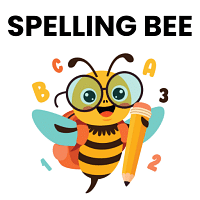Class 5 Exam > Class 5 Questions > What do you understand by proper food?
Start Learning for Free
What do you understand by proper food?
Most Upvoted Answer
What do you understand by proper food?
Proper Food:
Proper food refers to a balanced and nutritious diet that provides all the necessary nutrients, vitamins, and minerals required for the proper functioning of the body. It is important to consume a variety of foods from different food groups to ensure good health and well-being.
Importance of Proper Food:
Proper food is essential for several reasons:
1. Growth and Development: Proper food is crucial for the growth and development of children. It provides the necessary nutrients that support physical and cognitive growth, helping them reach their full potential.
2. Energy and Stamina: A balanced diet provides the energy required for daily activities and helps maintain stamina. It includes carbohydrates, proteins, and fats that fuel the body and keep it energized throughout the day.
3. Immune System: Proper food strengthens the immune system, making the body more resistant to diseases and infections. It includes foods rich in vitamins and minerals, such as fruits, vegetables, and whole grains.
4. Brain Function: The brain requires a steady supply of nutrients to function optimally. Proper food, especially foods rich in omega-3 fatty acids, can improve cognitive function, memory, and concentration.
5. Weight Management: Eating a balanced diet helps maintain a healthy weight. It includes portion control and a variety of foods to avoid excessive calorie intake or nutrient deficiencies.
6. Overall Health: Proper food plays a crucial role in preventing chronic diseases such as heart disease, diabetes, and certain types of cancers. It promotes overall health and well-being.
Components of Proper Food:
A proper food diet should include the following components:
1. Carbohydrates: Carbohydrates are the primary source of energy. They can be found in foods like grains, cereals, fruits, and vegetables.
2. Proteins: Proteins are essential for growth, repair, and maintenance of body tissues. Good sources of protein include lean meat, poultry, fish, eggs, legumes, and dairy products.
3. Fats: Fats are necessary for the absorption of fat-soluble vitamins and provide energy. Healthy sources of fats include nuts, seeds, avocados, and olive oil.
4. Vitamins and Minerals: Fruits, vegetables, whole grains, and dairy products are rich sources of vitamins and minerals. These nutrients are essential for various bodily functions and maintaining good health.
5. Fiber: Fiber aids digestion, prevents constipation, and helps maintain a healthy weight. It can be found in whole grains, fruits, vegetables, and legumes.
6. Hydration: Proper food also includes staying hydrated by consuming an adequate amount of water or other fluids throughout the day.
Conclusion:
Proper food is crucial for maintaining good health, supporting growth and development, and preventing diseases. It involves consuming a balanced diet that includes carbohydrates, proteins, fats, vitamins, minerals, fiber, and staying hydrated. By following a proper food diet, individuals can ensure their bodies receive the necessary nutrients for optimal functioning and overall well-being.
Proper food refers to a balanced and nutritious diet that provides all the necessary nutrients, vitamins, and minerals required for the proper functioning of the body. It is important to consume a variety of foods from different food groups to ensure good health and well-being.
Importance of Proper Food:
Proper food is essential for several reasons:
1. Growth and Development: Proper food is crucial for the growth and development of children. It provides the necessary nutrients that support physical and cognitive growth, helping them reach their full potential.
2. Energy and Stamina: A balanced diet provides the energy required for daily activities and helps maintain stamina. It includes carbohydrates, proteins, and fats that fuel the body and keep it energized throughout the day.
3. Immune System: Proper food strengthens the immune system, making the body more resistant to diseases and infections. It includes foods rich in vitamins and minerals, such as fruits, vegetables, and whole grains.
4. Brain Function: The brain requires a steady supply of nutrients to function optimally. Proper food, especially foods rich in omega-3 fatty acids, can improve cognitive function, memory, and concentration.
5. Weight Management: Eating a balanced diet helps maintain a healthy weight. It includes portion control and a variety of foods to avoid excessive calorie intake or nutrient deficiencies.
6. Overall Health: Proper food plays a crucial role in preventing chronic diseases such as heart disease, diabetes, and certain types of cancers. It promotes overall health and well-being.
Components of Proper Food:
A proper food diet should include the following components:
1. Carbohydrates: Carbohydrates are the primary source of energy. They can be found in foods like grains, cereals, fruits, and vegetables.
2. Proteins: Proteins are essential for growth, repair, and maintenance of body tissues. Good sources of protein include lean meat, poultry, fish, eggs, legumes, and dairy products.
3. Fats: Fats are necessary for the absorption of fat-soluble vitamins and provide energy. Healthy sources of fats include nuts, seeds, avocados, and olive oil.
4. Vitamins and Minerals: Fruits, vegetables, whole grains, and dairy products are rich sources of vitamins and minerals. These nutrients are essential for various bodily functions and maintaining good health.
5. Fiber: Fiber aids digestion, prevents constipation, and helps maintain a healthy weight. It can be found in whole grains, fruits, vegetables, and legumes.
6. Hydration: Proper food also includes staying hydrated by consuming an adequate amount of water or other fluids throughout the day.
Conclusion:
Proper food is crucial for maintaining good health, supporting growth and development, and preventing diseases. It involves consuming a balanced diet that includes carbohydrates, proteins, fats, vitamins, minerals, fiber, and staying hydrated. By following a proper food diet, individuals can ensure their bodies receive the necessary nutrients for optimal functioning and overall well-being.
Attention Class 5 Students!
To make sure you are not studying endlessly, EduRev has designed Class 5 study material, with Structured Courses, Videos, & Test Series. Plus get personalized analysis, doubt solving and improvement plans to achieve a great score in Class 5.

|
Explore Courses for Class 5 exam
|

|
Similar Class 5 Doubts
What do you understand by proper food?
Question Description
What do you understand by proper food? for Class 5 2024 is part of Class 5 preparation. The Question and answers have been prepared according to the Class 5 exam syllabus. Information about What do you understand by proper food? covers all topics & solutions for Class 5 2024 Exam. Find important definitions, questions, meanings, examples, exercises and tests below for What do you understand by proper food?.
What do you understand by proper food? for Class 5 2024 is part of Class 5 preparation. The Question and answers have been prepared according to the Class 5 exam syllabus. Information about What do you understand by proper food? covers all topics & solutions for Class 5 2024 Exam. Find important definitions, questions, meanings, examples, exercises and tests below for What do you understand by proper food?.
Solutions for What do you understand by proper food? in English & in Hindi are available as part of our courses for Class 5.
Download more important topics, notes, lectures and mock test series for Class 5 Exam by signing up for free.
Here you can find the meaning of What do you understand by proper food? defined & explained in the simplest way possible. Besides giving the explanation of
What do you understand by proper food?, a detailed solution for What do you understand by proper food? has been provided alongside types of What do you understand by proper food? theory, EduRev gives you an
ample number of questions to practice What do you understand by proper food? tests, examples and also practice Class 5 tests.

|
Explore Courses for Class 5 exam
|

|
Signup for Free!
Signup to see your scores go up within 7 days! Learn & Practice with 1000+ FREE Notes, Videos & Tests.

























